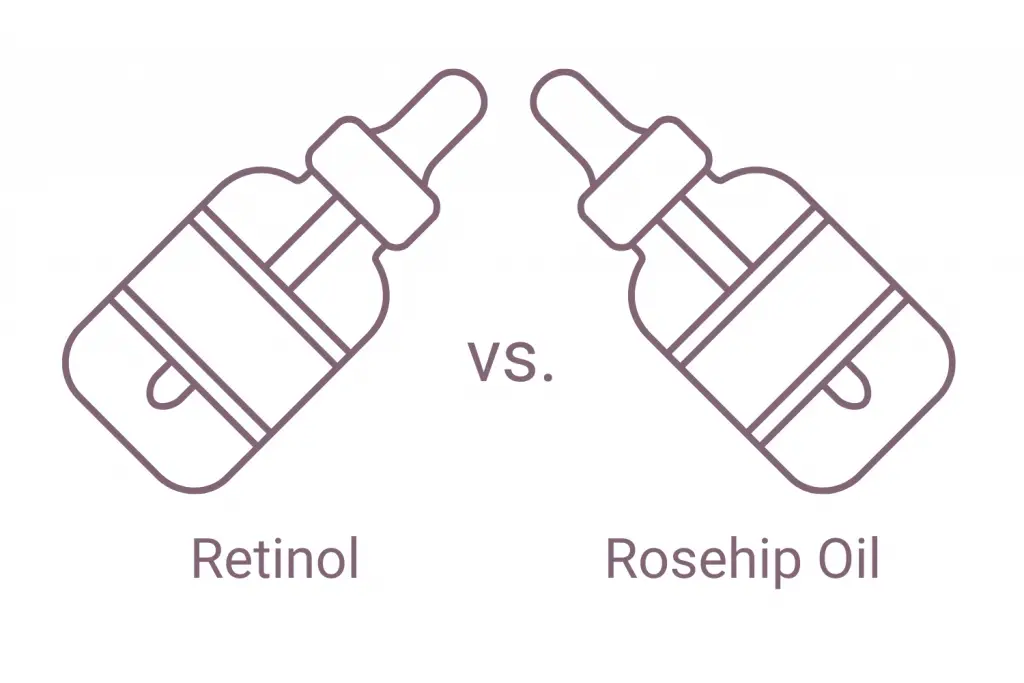Navigating the whole world of skincare ingredients can be quite daunting. There are so many options out there when looking to maintain beautiful and youthful skin that it can get overwhelming.
This post may contain affiliate links. Read the full disclosure here
Plus, so many people have the experience of trying certain skincare products and just not seeing the right results they are hoping for in their skin. This is especially true when it comes to making significant improvement-based changes in your skin, or trying to work some anti-aging ingredients into your skincare regimen.
These types of potent ingredients need to be worked into a skincare routine correctly to be their most effective in making real changes to the texture, look, and feel of your skin.
Two very effective and potent skincare ingredients to try in a routine that dermatologists recommend quite often to their patients are retinol and rosehip oil.
Let’s look at the profile on each of these ingredients to compare the two, so you can determine whether or not they will be beneficial for your skin’s health and wellness.
What Is Retinol?
Retinol is one of the most popular and widely used skincare ingredients on the market today. Many different companies make a retinol-based product that is usually used in a serum or moisturizer form.
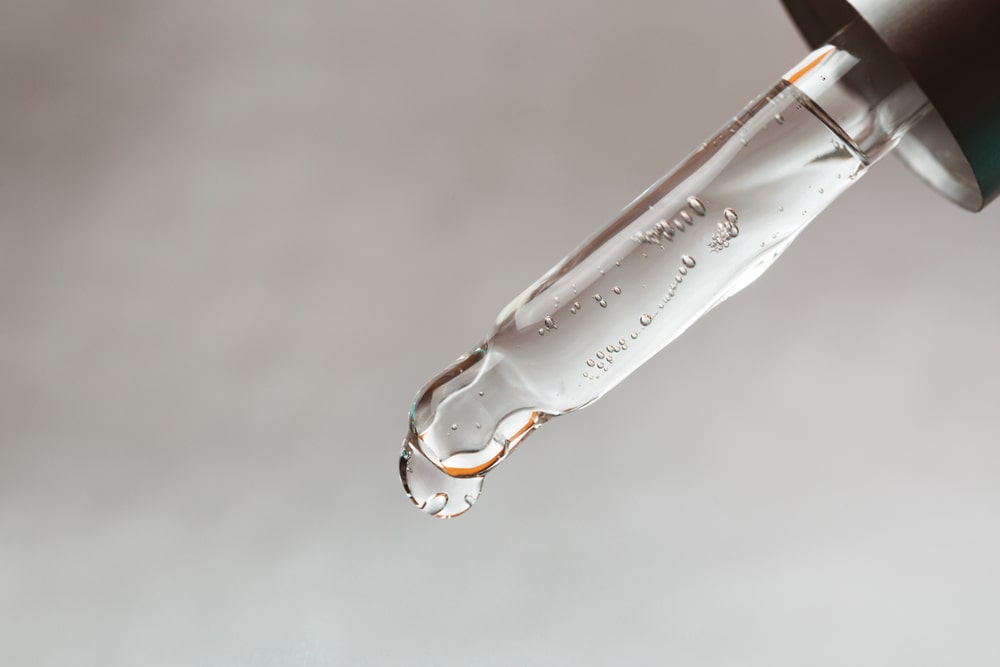
Retinol is a form of vitamin A that you can buy in over-the-counter skincare products, or in a prescription from a dermatologist. The retinol that you can get prescribed by a doctor is going to be a stronger version, with a higher percentage, than what you could encounter in prestige or drugstore skincare products.
Although many skincare versions of retinol have been proven to be effective at solving some common skincare problems, like aging and dull skin.
Vitamin A or retinol is a skincare ingredient that promotes skin cell turnover, renewal, and can even stimulate collagen production in the skin for a more youthful look. As the skin ages, the collagen production naturally goes down and it’s required for optimal connective tissue to stay supple and resist breaking down.
Think of collagen as the structural building block for healthy skin. That’s why using retinol to enhance collagen production is so valuable to the skin’s look and feel.
When used in combination with the right skincare routine, retinol is very effective at making real changes in the skin that you can see. There have been many studies done about the efficacy and safety of applying topical retinol to the skin in the treatment of skin aging and concerns.
Retinol Skin Benefits
There are many benefits to using retinol in various skincare products.
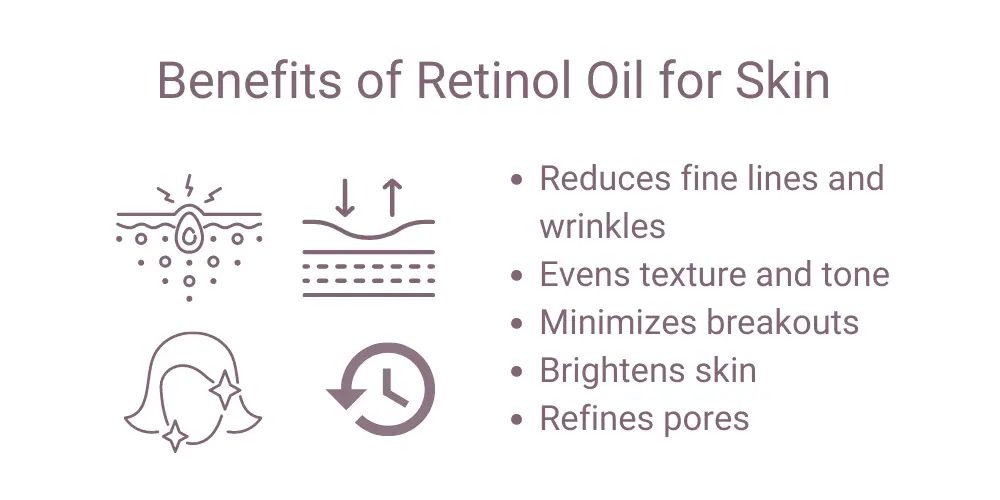
Reduces fine lines and wrinkles
Other than increasing skin’s renewal and stimulating collagen production, retinol can help to minimize the appearance of fine lines and wrinkles, according to researchers at the Harvard Medical Institute. This goes back to the fact that it’s the collagen production being increased that will help to fight off fine lines and wrinkles from forming prematurely.
Reduces the appearance of large pores
Retinol helps decrease the appearance of large pores by simply exfoliating the surface of the skin, cleaning the pores out, and thereby, in the process, making them look smaller. That’s a big plus for people who are concerned with how their pores look and want them to be more seamless looking.
Even tone and texture
By getting rid of dead skin cells on facial skin, retinol can even out uneven tone and texture, making the skin more smooth and uniform-looking. It does this by stimulating the production of new blood vessels in the skin for overall radiance.
When there are dark spots or age spots (hyperpigmentation) present, the retinol can help to reduce that former sun damage (photoaging) for more radiant skin that glows with health.
Retinol Side Effects/Considerations
Retinol is well tolerated by most people’s skin (but not all). When you first start using retinol, you may notice some redness, itchiness, peeling, or sensitivity in the skin. That will decrease over a few weeks once your skin gets used to the new ingredient.
Just make sure you use an effective moisturizer in your routine to compensate for this new skin turnover. It may be helpful to ease into it as well. Before using daily, start with a routine of every few days or every other day to make sure your skin isn’t experiencing unpleasant side effects. If you’re skin is handling the retinol well, you can move up to using more frequently.
It’s imperative, as well, that you use an SPF of at least 30 on your face daily. Your skin can will become more sensitive to the sun when it’s introduced to a retinol product. It’s very easy to incorporate the right sunscreen into your skincare routine in the morning and reapply a couple of times throughout the day if you are going to be in the sun. Extra sun sensitivity from retinol is common, so protect your skin accordingly.
The only people who should avoid high potency retinol are those with extremely sensitive skin or conditions like rosacea. Sensitive skin people can get their face or body used to retinols but may want to start with a lower potency percentage, as their skin acclimates to the product with retinol.
More Retinol comparisons you might like:
What Is Rosehip Oil?
Rosehip oil is a completely different type of skincare ingredient that is loaded with antioxidants. It’s made from cold-pressing the seeds of the rose bush plant (rosa rubiginosa) to extract the precious oil that is very valuable in skincare.
The plant is mainly grown in the southern Andes, but another type is extracted from the rosa moschata that is found in other parts of the world, like in India and Europe.
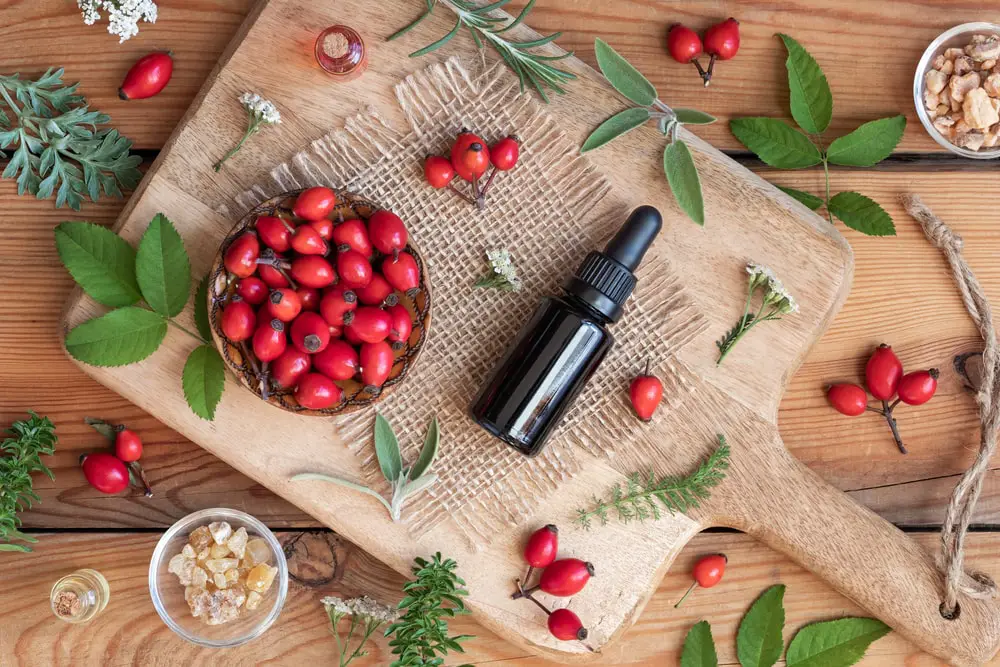
Many dermatologists recommend it due to the fact that it’s a beloved oil that has been used for centuries in skincare with many benefits and is ideal for all skin types, including oil or acne-prone skin. It’s an oil with super easy absorption for a lighter feel than most traditional oils, like coconut or olive oil. It goes on smooth and has a slightly nutty/vanilla smell. It’s not overpowering but is noticeable, especially when first applying.
In general, rosehip oil is high in vitamin A, which is why many people confuse it with retinol products since retinol is concentrated vitamin A. Each ingredient does have some similar benefits for the skin.
Rosehip Oil Skin Benefits
There are many skincare benefits to using rosehip oil.
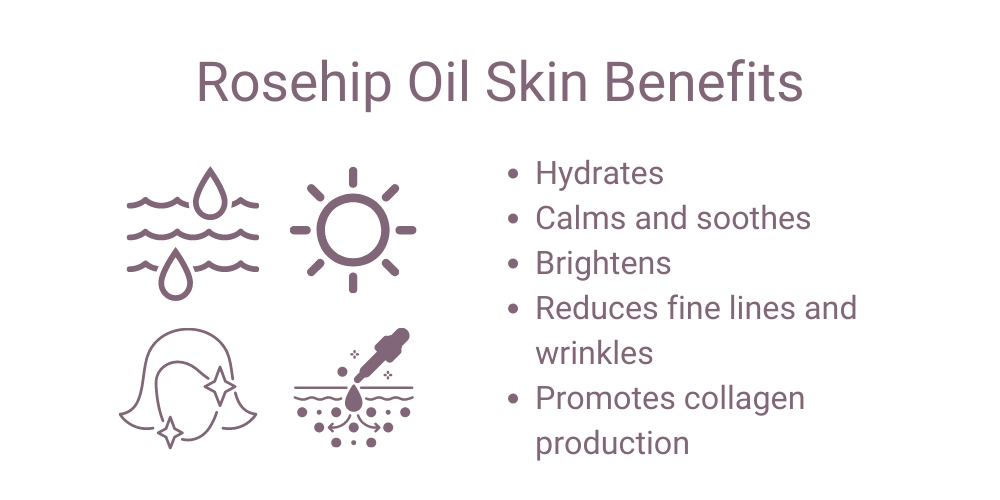
Brightens Skin
First, it brightens and evens out the skin tone. You’ll find that when you have skin that is dull and lackluster, using rosehip oil will help to remedy that issue. Glowing skin that radiates health is the goal when using rosehip oil that infuses the skin with life.
Even texture and tone
It can also regenerate and heal the skin, so for those with old marks or acne scars, using the oil will make serious improvements in how the skin looks, being more smooth and even.
Reduce the appearance of wrinkles and fine lines
For those that are concerned with aging in the skin, rosehip oil is excellent at improving elasticity by boosting collagen production. Skin will be plumped up, more firm, and have better youthful contours with less visible lines and wrinkles.
More rosehip oil comparisons you might like:
- Rosehip Oil vs. Hyaluronic Acid
- Rosehip Oil vs. Squalane
- Rosehip Oil vs. Marula Oil
- Rosehip Oil vs. Argan Oil
- Rosehip Oil vs. Vitamin C
Comparing Retinol vs. Rosehip Oil
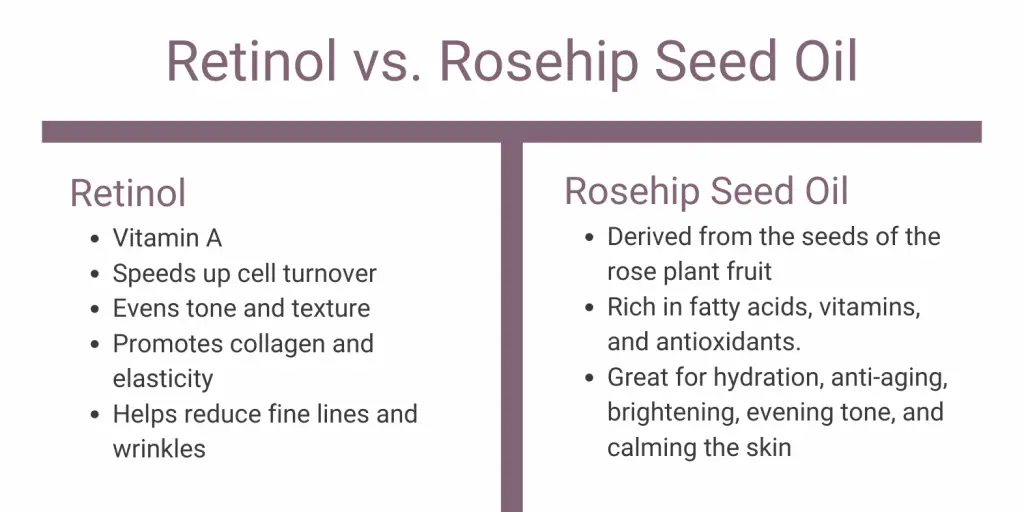
There are some similarities in what retinol and rosehip oil do to treat issues in the skin. As stated before, retinol is pure vitamin A, while rosehip oil contains some vitamin A as part of its makeup. That’s why both of these ingredients are effective at boosting collagen production, improving uneven skin tone, and adding radiance to the skin.
The difference is that retinol on its own isn’t very hydrating. You would need to use a separate moisturizer with any retinol product unless it’s a specific retinol-based moisturizer that just has retinol as part of its ingredients.
Rosehip oil is hydrating and nourishing on its own due to its high level of fatty acids that flush the skin with moisture. It helps the skin retain water because oils act as a barrier. Retinol doesn’t do that because it’s more of a treatment for the skin, whereas rosehip is a treatment and moisturizer.
Which Is Better?
Both of these skincare ingredients are effective at producing results that are beneficial to the skin. You don’t want to use them together though, since they are both essentially vitamin A (retinol) and contain vitamin A (rosehip oil). They both encourage cell turnover, so it’s not ideal to use them at the same time in layering. Stick to one or the other. In looking at which is better, it really depends on your skin type and needs.
Rosehip seed oil is beneficial for all skin types and is very well tolerated by those with sensitive skin. It’s especially useful for mature or very dry skin that needs extra moisture, while treating issues in the skin, like uneven tone, dull texture, and fine lines.
Retinol works well for most skin types, except for those with very sensitive or highly reactive skin. They would prefer using rosehip oil since there aren’t any real side effects of using it and it is more gentle on the skin.
For those concerned with aging in the skin, mainly the loss of collagen, elasticity issues, and fine lines and wrinkles, you’ll get more value by using high potency retinol. That way you’ll see benefits in your skin faster and with more long-term results.
Retinol and Rosehip Oil Together
Once again, many people think that doubling up on vitamin A will be beneficial for their skin. That’s why they might think that using retinol and rosehip oil together is going to give them double the impact.
Since they are essentially geared towards doing the same things for the skin in benefits, like increasing cellular turnover, improving collagen production, and evening out the skin tone, it’s unnecessary to use them together and may just increase skin irritation.
If you are truly intent on using them together, alternate days with each so that you’re not using them at the same time. For example, use a retinol product one to three times per week and rosehip oil on the other days, for the best results.
As always, developing a consistent skincare routine morning and night is going to be the best option for your skin. When starting any new regimen, make sure that you give your skin time to produce results for you.
Don’t expect a miracle after the first week. Most skincare ingredients take at least four to six weeks to see results. As more time goes on, when using retinol or rosehip oil, you’ll notice an even better outcome for your skin with improvements you’ll enjoy seeing.

